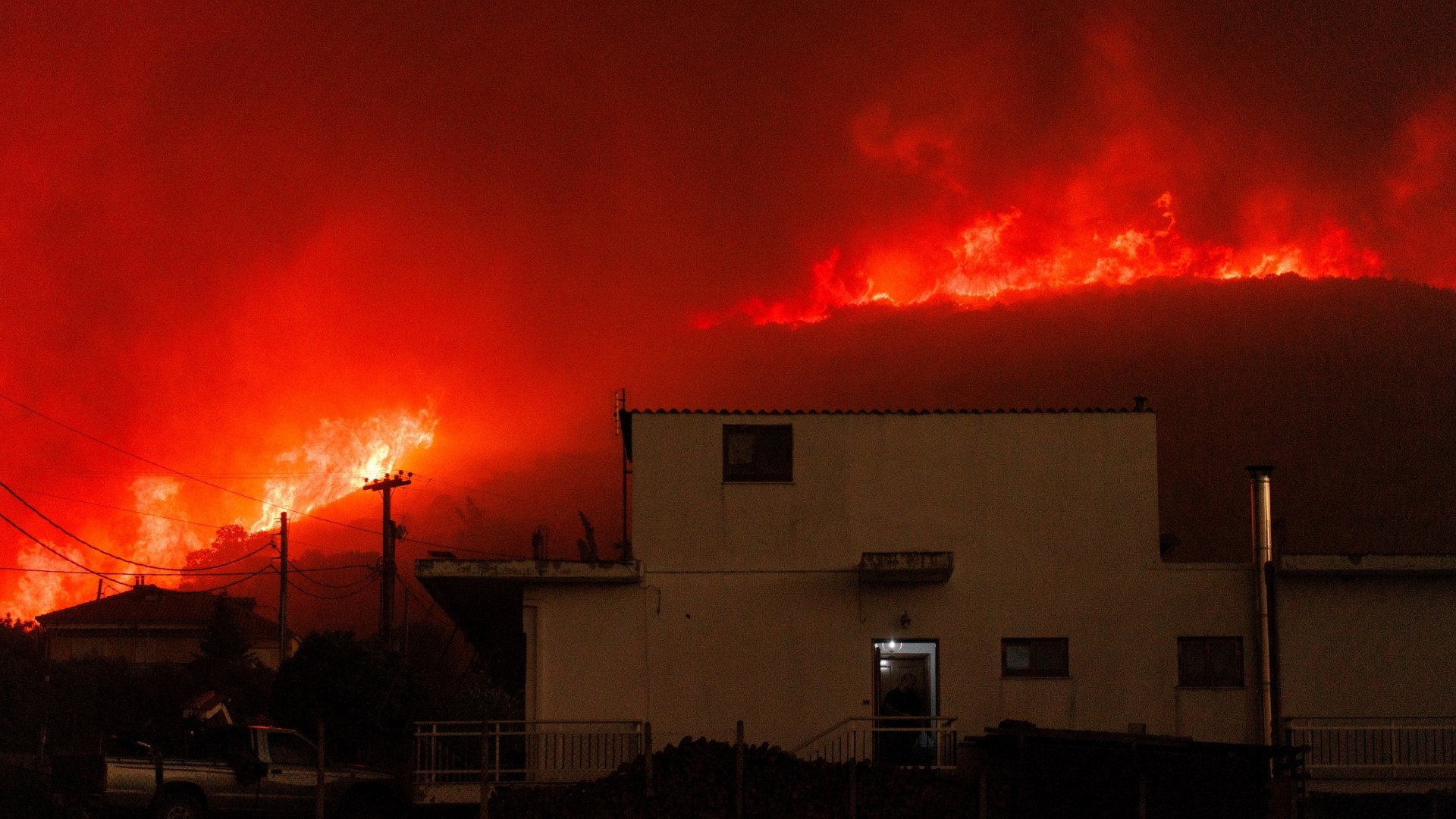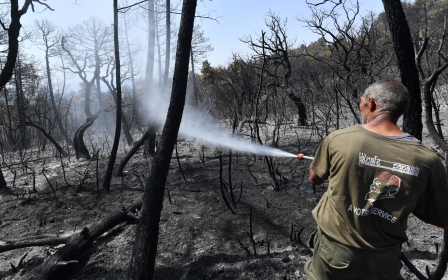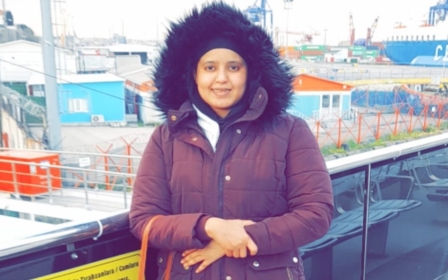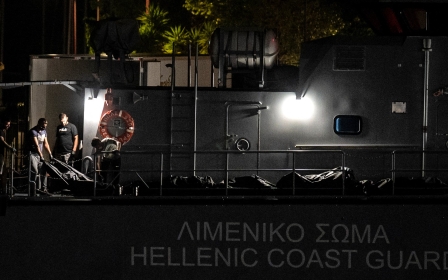Greece: Suspected asylum seekers killed in Evros fires

Fire fighters have found the charred remains of 18 suspected asylum seekers in the Dadia forest in Evros amid wildfires in Greece that have been raging for the past four days.
Fire department spokesman Yiannis Artopoios confirmed in a televised address on Tuesday that the bodies were found in two different locations near the Turkish border, one of the most common migration entry points for Syrian and Asian migrants crossing the Evros River from Turkey.
No local people have been reported missing, so the remains are thought to belong to asylum seekers.
“We know very quickly if it’s a local or not, because [they] will be reported missing very fast,” forensics anthropologist Jan Bikker, who is working to identify the bodies, told MEE. “If they're not reported, then most likely it's an asylum seeker.”
According to Bikker, Dadia is a common migration route, as it is densely forested, allowing migrants to hide from the Greek authorities who would likely push them back out to sea.
New MEE newsletter: Jerusalem Dispatch
Sign up to get the latest insights and analysis on Israel-Palestine, alongside Turkey Unpacked and other MEE newsletters
“The safest way [for them] is through the forest. This is what people do after they cross over the river,” he told MEE.
“A lot of migrant groups [that] travel [do] not even [travel] on the roads, but in the middle of the forest.”
Amid soaring temperatures, these routes are also the sites of devastating forest fires.
“There is always a possibility that someone could have died in one of those fires…and the bodies are never recovered," he said.
“It’s very, very dangerous terrain…if they go missing, it’s very difficult to trace them."
While Artopois said that emergency alerts were sent to all mobile phones in the area, according to Bikker, it is unlikely the group would have carried phones or had any signal if they did.
“Often, they are not able to communicate with the outside world until they reach like a village where there is some internet signal,” he said.
Struggling to breathe
The NGO Alarm Phone had reportedly been in contact with two groups of 250 people stranded on different islets of the Evros River for days. Some of them sent videos of the approaching fires with pleas for help: “The fires are getting very close to us now. We need help as soon as possible!"
“They fear for their lives as the wildfires approach & the air is unbreathable. Their cries for help have remained unanswered by authorities for days,” the NGO tweeted.
Later, the NGO reported receiving another alert from a group near the town of Soufli. “They tell us one person struggles to breathe. They unable to move due to the nearby fires and worry they will die,” they tweeted.
Greece has seen a devastating wave of wildfires since July, fuelled by high winds and soaring temperatures. The recent deaths have brought the overall toll to 20. Fifty-three new blazes broke out across the country on Monday.
For Bikker, who works to trace long-term missing people in the region, the impact of wildfires on migrants is often overlooked.
“People think of the locals, but it also [impacts] the migrants.” He added: “For many of the people who go missing, we will not find anything…because they get lost in the fires and the remains will never be recovered.”
Since 2020, civil actors have reported a surge in disappearances and deaths of asylum seekers on the Greek islands.
When they arrive on the islands, migrants are driven to hiding in forested or mountainous areas in order to evade pushback by the Greek authorities.
Middle East Eye delivers independent and unrivalled coverage and analysis of the Middle East, North Africa and beyond. To learn more about republishing this content and the associated fees, please fill out this form. More about MEE can be found here.




